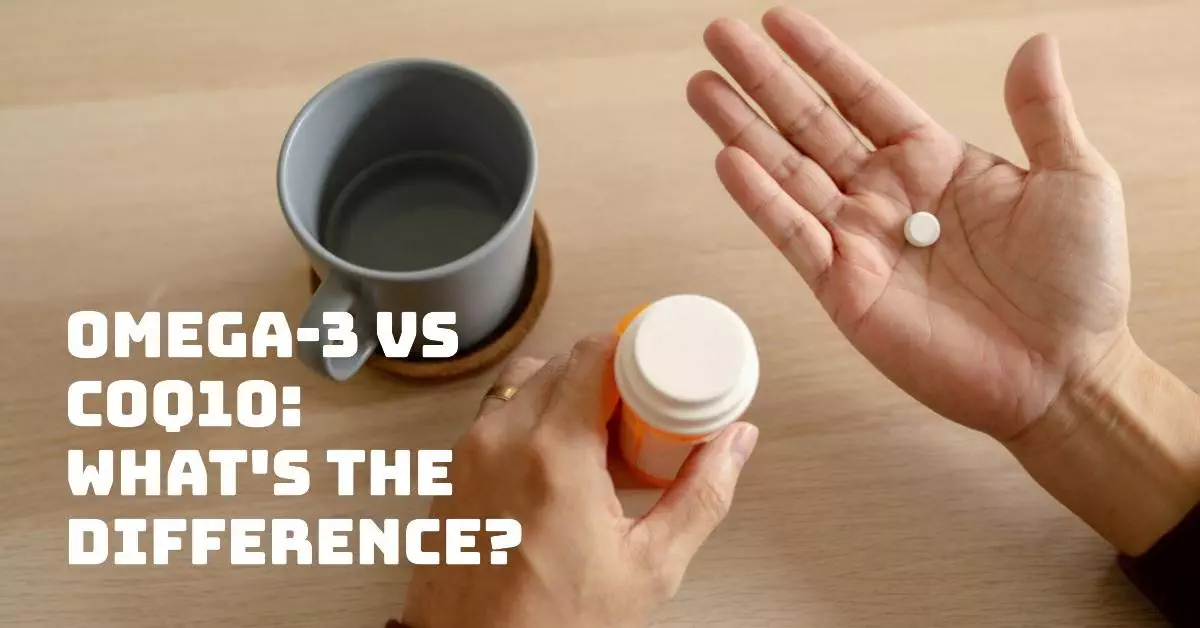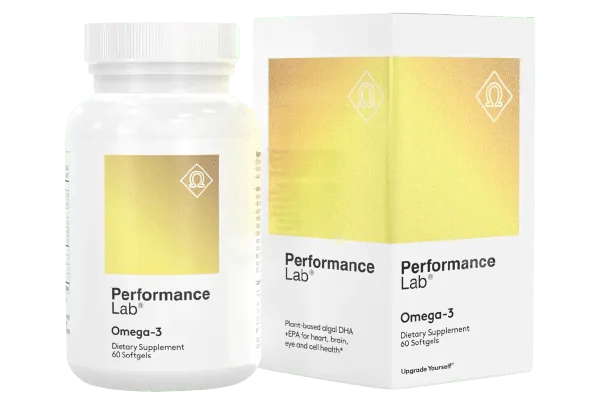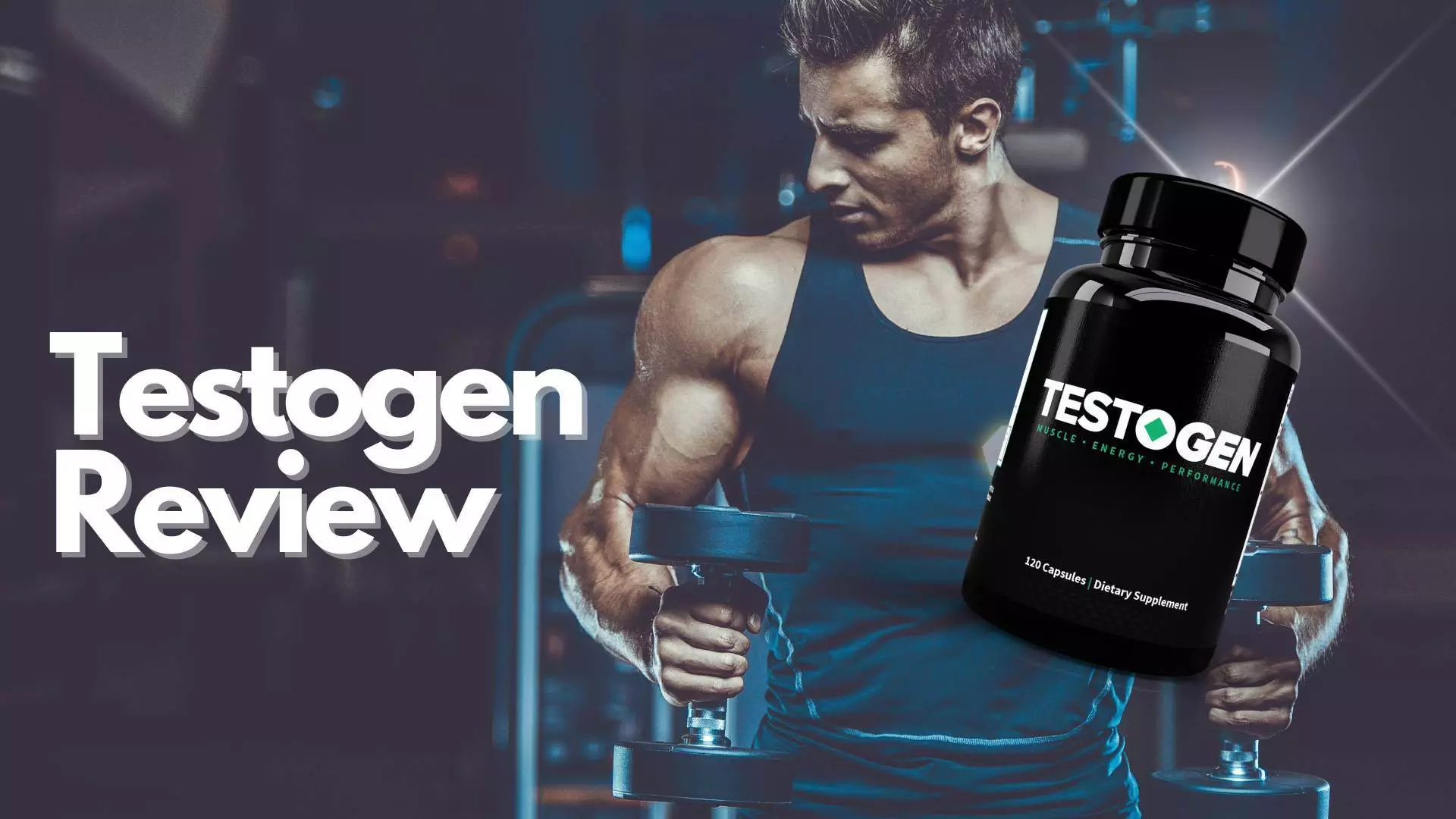Is Omega 3 the same as CoQ10? The quick answer is no—while both provide key health perks, these supplements aren’t interchangeable.
Omega-3 fatty acids fight inflammation and support the brain, while CoQ10 ramps up cellular energy production.
Omega-3s originate from foods like salmon and walnuts, but your body synthesizes CoQ10.
Despite having unique roles, omega-3s and CoQ10 unite in promoting a healthy ticker.
Still wondering about the ins and outs of these heart helpers? My complete guide explores everything from omega-3 vs CoQ10 sources to how to pair them for optimal wellness—just keep scrolling.
Key Takeaways
- Omega-3 fatty acids and Coenzyme Q10 (CoQ10) have different roles: Omega-3s fight inflammation while CoQ10 powers cellular energy production.
- Evaluate your diet first to see if you need more Omega-3s and CoQ10 before taking supplements. Food sources include fatty fish, organ meats, nuts and seeds.
- CoQ10 levels decline as you age; those over 50 often benefit from supplementation to maintain heart health.
- Omega-3 and CoQ10 supplements may help manage symptoms of certain heart and brain conditions like ADHD, depression and migraines.
- Always consult your doctor before taking Omega-3 or CoQ10 supplements to prevent medication interactions and ensure proper dosing tailored to your needs.
Omega-3 vs CoQ10: What’s the Difference?

Omega-3 fatty acids and Coenzyme Q10 (CoQ10) often pop up in the supplement world. They’re both touted for their impressive health benefits, but they’re not the same.
Omega-3 fatty acids are a group of polyunsaturated fats that you must obtain through your diet or supplements.
They’re crucial for building cell membranes in the body and have potent anti-inflammatory properties. There are three main types:
- Eicosapentaenoic acid (EPA)
- Docosahexaenoic acid (DHA)
- Alpha-linolenic acid (ALA)
EPA and DHA are primarily found in fish, whereas ALA is in plant sources like flaxseed and walnuts.
CoQ10, on the other hand, is a substance that your cells produce naturally. It plays a key role in energy production and acts as an antioxidant protecting your body from harmful molecules.
Unlike omega-3s, CoQ10 levels decrease with age, and supplementation may be beneficial for maintaining heart health and preventing oxidative damage.
Here’s a quick comparison of their roles in your body:
| Nutrient | Primary Role | Sources |
|---|---|---|
| Omega-3 FA | Cell membrane structure, anti-inflammatory | Fatty fish, flaxseeds, walnuts |
| CoQ10 | Energy production, antioxidant | Meat, fish, nuts, and produced by the body |
So, while they both contribute to your health, omega-3s and CoQ10 serve different functions and are not interchangeable.
Omega-3s are essential fats, meaning they’re necessary for health but cannot be made by the body. CoQ10 is made endogenously but may require supplementation as you get older.
Integrating both omega-3 fatty acids and CoQ10 into your lifestyle can offer a comprehensive approach to heart health, inflammation control, and energy levels.
Remember to consult with a healthcare provider before starting any new supplement regimen to determine what’s best for your individual needs.
Boost your wellbeing with Performance Lab Omega-3. Pure, eco-friendly, in carrageenan-free NutriGels®. Optimal health is a click away. Act now!
The Role of Omega-3 in Your Health
Omega-3 fatty acids are vital to your well-being. As components of every cell in your body, they affect the function of your cell receptors.
These healthy fats are also crucial in producing hormones that regulate blood clotting, contraction and relaxation of artery walls, and inflammation.
Due to their anti-inflammatory properties, Omega-3s play a significant role in managing and lowering the risk of chronic diseases such as heart disease, arthritis, and even certain types of cancer.
Clinical studies highlight the cardiovascular benefits of Omega-3s, especially EPA and DHA, which are primarily found in fish.
Regular consumption of these fatty acids supports healthy blood pressure, reduces triglyceride levels, and can slow the development of plaque in the arteries. For those with heart disease, Omega-3 supplements may decrease the likelihood of heart attacks and strokes.
Your neurological health also gets a boost from Omega-3 fatty acids. DHA, a specific type of Omega-3, is a major structural component of your brain and retina.
Adequate intake of DHA is linked to a reduced risk of macular degeneration, which can result in vision impairment and blindness.
Additionally, Omega-3 consumption is associated with a lower incidence of depression, anxiety, and various mental disorders.
- Cognitive function, particularly as you age, benefits from these fatty acids.
- Children who receive enough Omega-3s during development have been shown to have a reduced risk of ADHD.
Given that your body can’t produce Omega-3s, you must get them through your diet or supplements. Eating cold-water fatty fish like salmon, mackerel, and sardines a couple of times per week is a great way to ensure adequate intake.
For vegetarians or those with fish allergies, flaxseeds, chia seeds, and walnuts are excellent plant-based sources, although the body is less efficient at converting these into the active forms compared to fish-sourced Omega-3s.
If neither dietary option works for you, fish oil supplements or algal oil, a plant-based alternative like Performance Lab Omega-3, can fill in the gap.
The Role of CoQ10 in Your Health

While you’re familiar with Omega-3’s heart and anti-inflammatory benefits, CoQ10 (coenzyme Q10) tackles a slightly different, yet significant, aspect of your health.
CoQ10 is a naturally occurring antioxidant that your body produces, playing a critical role in the generation of cellular energy.
Your cells use CoQ10 to produce adenosine triphosphate (ATP), which fuels cellular activity and supports various body systems.
Beyond energy production, CoQ10 helps:
- Neutralize free radicals, protecting cells from oxidative damage and aging
- Support heart health, reducing the risk of heart-related conditions
- Balance blood pressure levels, crucial for cardiovascular maintenance
Evidence suggests that CoQ10 supplementation may be beneficial for individuals suffering from specific genetic disorders, mitochondrial diseases, or those who use statins, which can reduce natural CoQ10 levels [1].
Despite its importance, the body’s natural production of CoQ10 declines with age, which is why supplementation becomes increasingly important as you grow older.
The impact of CoQ10 on neurological health is under study, with some research indicating potential positive effects on diseases like Parkinson’s and Alzheimer’s.
These possible benefits link back to CoQ10’s ability to mitigate oxidative stress, which is believed to play a role in the development of these neurological conditions.
Sources of CoQ10 include:
- Organ meats (heart, liver, kidney)
- Certain fish (trout, herring, mackerel)
- Meats (pork, beef, chicken)
- Nuts and seeds
- Fruits and vegetables (broccoli, oranges, strawberries)
Ensuring that your diet contains these foods or considering supplementation is key to maintaining optimal levels of CoQ10.
Remember, while your body can produce CoQ10, factors such as age, certain health conditions, and medication use may necessitate an external supply to meet your body’s needs.
Reignite your inner fire – feed your cells pure energy to optimize performance. Unlock your potential with nature’s vitality boost.
Benefits of Omega-3 and CoQ10
Omega-3 fatty acids and CoQ10 are powerhouses in their own right, each with distinctive benefits that support your health.
Omega-3 fats are essential for maintaining cardiovascular health, reducing inflammation, and supporting brain function.
They’re found in high concentrations in your brain and are crucial for cognitive and behavioral function. Research also suggests that Omega-3s can be instrumental in lowering blood triglycerides, potentially reducing the risk of heart disease.
On the other hand, CoQ10 is a key player in energy production at the cellular level and has potent antioxidant properties that can protect your cells from oxidative damage.
This is especially beneficial for your heart, as a healthy heart requires a vast amount of energy to function efficiently. CoQ10 has also been linked to improved outcomes in patients with heart failure and hypertension.
When you combine Omega-3 fatty acids with CoQ10, you’re giving your body a synergistic boost.
The anti-inflammatory properties of Omega-3s complement the energy-enhancing and antioxidant activities of CoQ10, offering a comprehensive approach to cardiovascular well-being.
Key Synergistic Effects
- Enhanced cardiovascular protection
- Reduction of inflammation
- Improved energy levels in cells
Incorporating both Omega-3s and CoQ10 into your diet isn’t just about tackling one health issue — it’s about creating a holistic defense against various ailments.
Fish like salmon and mackerel are excellent sources of both Omega-3s and CoQ10, making them perfect dietary additions for someone looking to improve their health profile.
Ensuring you have enough Omega-3 fats and CoQ10 in your system could be the step forward you need for a more vigorous, healthy life.
Remember that while you can get these nutrients from food sources, supplementation can be a practical choice, especially with the body’s decreasing ability to produce CoQ10 as you age.
Always consult with your healthcare provider before starting any new supplement regimen to tailor it to your specific health needs.
Should You Take Omega-3 and CoQ10 Supplements?
Identifying whether you should incorporate Omega-3 and CoQ10 supplements like Performance Lab Energy into your regimen depends on various factors, including your dietary habits, health goals, and specific medical conditions.
Supplementation may be particularly beneficial if your diet lacks the necessary amounts of these essential nutrients. Here’s how to assess whether supplementation is the right move for you.
Assessing Your Dietary Intake
Firstly, evaluate your daily intake of foods rich in Omega-3 and CoQ10. If you’re not frequently consuming fatty fish, nuts, and vegetables.
Or, if you’re part of a demographic with higher requirements, such as pregnant women or older adults, supplements can help fill nutritional gaps.
Remember that balanced diets typically provide sufficient Omega-3; however, CoQ10 levels can be trickier to maintain as they decline with age.
Health Goals and Medical Conditions
Supplements can support various health goals, from enhancing cardiovascular function to improving cognitive health. If you have concerns about heart health or brain function, boosting your intake with supplements might be advantageous.
For those with specific medical conditions such as hypertension or migraines, which may respond positively to these nutrients, supplementation upon medical advice could be a factor in managing symptoms effectively.
Consultation with Healthcare Professionals
Before adding supplements to your regime, consult with a healthcare professional. They’ll consider your health history, current medications, and individual needs to determine if supplementation is necessary, and guide proper dosing.
This step is crucial; high doses of Omega-3 can potentially affect blood clotting, while excessive CoQ10 intake might interfere with some medications.
Incorporating Omega-3 and CoQ10 supplements might offer comprehensive health benefits if your diet lacks these critical components or if you belong to a group that requires higher nutrient intake.
Tailoring supplementation to your unique needs is key to optimizing health outcomes. Make sure to source high-quality supplements, and adhere to recommended doses to gain the maximum health benefits without unwanted side effects.
Is Omega 3 The Same as CoQ10? – Final Thoughts
You’re now equipped with the knowledge to make an informed decision about Omega-3 and CoQ10 supplements. Remember assessing your diet and health goals is key before adding any supplements to your routine.
Don’t hesitate to consult a healthcare professional to tailor the right plan for your needs. With the right approach, you could unlock the door to enhanced well-being through these powerful nutrients.







Leave a Reply